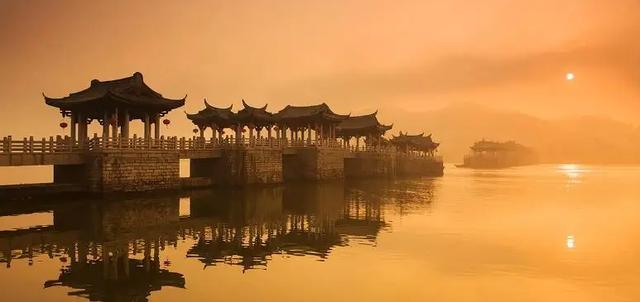
In 2020, for various reasons, I left a company that had previously claimed to be committed to the development of the cultural industry and changed to a whole new field.
Today, it's been almost two years.
Looking back now, I can't help but wonder, what should our cultural industry look like?
I still remember that in 2015, benefiting from a dividend policy of cultural industry development of the national cultural department, I twice went to the Beijing Central Cultural Cadre Management Institute for training, together with the heads or main managers of hundreds of large and small cultural tourism enterprise companies from all over the country, and the lecturers were also experts and scholars from top universities and cultural tourism research institutions in China.
The training is mainly divided into classroom lectures and field trips, and the location of our visit is Suzhou, Jiangsu Province.
Although the training time is only half a month, it makes my heart full of warmth, because with people from all over the country, in the field I am familiar with, I can also get the guidance of experts in the industry, which is really an indescribable happiness.
When the training was over, I returned to my hometown, but suddenly found that the reality is often more cruel.
What kind of appearance should the cultural industry look like? It seems that through training, a good solution has not been found.
Is the concept of cultural industry mainly based on culture? Or is it industry-oriented?
To this day, I find that it seems that we have not done both well.
Excellent cultures have not been able to create much, let alone industrialized development.
In fact, in my personal opinion, culture and industry are originally two diametrically opposed concepts.
How to say it?
Today, we can see all the domestic cultural forms with vitality and wide attention, whether it is literature, art, etc., their original motivation is not driven by industrialization, but based on the inherent creative motivation of the original author, which is some talented, some are based on a kind of persistence and enthusiasm in the heart, even if it is forced to make a living, behind it can still see the creator's love for the creation of works.
However, some form of cultural works they created illuminated future generations.
Even when some people put forward the slogan of "cultural industrialization" development, many of them develop many works created by their ancestors as a kind of mineral deposit.
The impetus for this development is based on a demand for economic benefits, but it is not consistent with the intrinsic dynamics generated by this culture.
Under such a huge difference, the culture + industry is often unable to achieve benign development, and more is only a tool for some people to pursue profits and fame in a short period of time, but in the long run, it will only cause irreversible damage to the original cultural form.
Today, I have been away from this field for a long time.
If you ask me if the road of culture + industry can work, I may find it difficult to answer.
However, I believe that culture has its own path of germination and growth.
Behind the growth of each great cultural work, there is no condensation of the bitterness and pain of the original, but the feelings behind this are not replaced by the industrialized production model.
Like the welcome pine that grows between the cliffs, it cannot be cultivated in a greenhouse in any way.
Even if we give it more nutrients and care, it will be difficult to reproduce its rugged momentum and greatness.
If you want to have a thriving cultural industry, you must first have great cultural works appear.
The premise for the emergence of cultural works is, first of all, to have long-term accumulation.